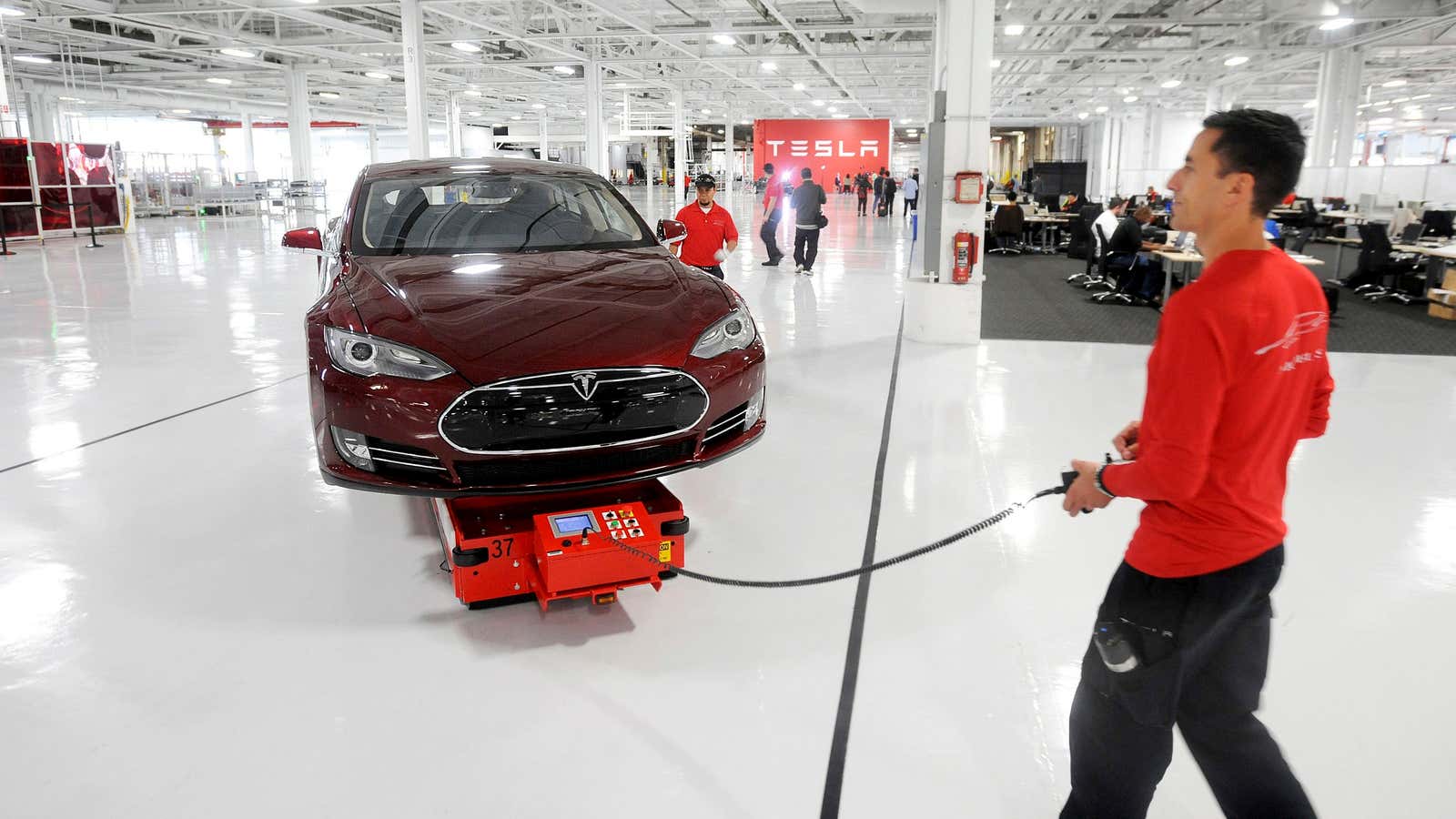Elon Musk’s electric car firm is recalling all 90,000 Model S sedans it has sold to check for possible seat belt defects.
According to Reuters, the voluntary recall was prompted not by a traffic accident, but a customer report of “a seatbelt assembly breaking when a customer in the front passenger seat of a Model S on the road in Europe turned to talk with passengers in the rear seat.”
Tesla’s share price dipped on the news.
Seat belt failures could obviously increase the risk of death or injury in the event of a vehicle collision.
Here are relevant excerpts from the email Tesla sent to owners of the Model S today:
We are sending you this email to inform you of a proactive action Tesla is taking to ensure your safety. Tesla recently found a Model S in Europe with a front seat belt that was not properly connected to the outboard lap pretensioner. This vehicle was not involved in a crash and there were no injuries. However, in the event of a crash, a seatbelt in this condition would not provide full protection. First and foremost, we care about your safety.
This is the only customer vehicle we know of with this condition. Even though we have since inspected the seat belts in over 3,000 vehicles spanning the entire range of Model S production and found no issues, we have decided to conduct a voluntary recall as a proactive and precautionary measure to inspect all front Model S seat belts and make absolutely sure that they are properly connected. (We have no concerns regarding seat belts in the rear of Model S.)
Our records indicate you own a Model S affected by this voluntary recall. We will be sending you an official recall notice by mail, but you don’t need to wait for this notice to schedule your free inspection.
If you are concerned about the status of your seatbelt prior to your scheduled inspection, you may be able to detect this condition by pulling very firmly on the lap portion of your seat belt with a force of at least 80 pounds. This procedure may detect an improperly attached seat belt but performing this procedure does not replace the need for an inspection by a Tesla technician.
In 2014, Tesla recalled 29,222 cars because of an overheating problem with its charging equipment. “The word recall is vestigial,” Musk said in an interview at the time, adding that “remedy would be an accurate way to describe it.”




